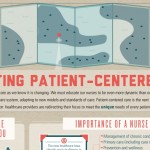
This year the Medicare open enrollment period overlaps with open enrollment for the Affordable Care Act (ACA) marketplace also referred to as “Obamacare.” Medicare isn’t part of the Health Insurance Marketplace established by ACA, so recipients don’t have to replace their Medicare coverage with Marketplace coverage. Medicare enrollees may also benefit from the improved coverage as a result of the new legislation. There are essentially 5 ways that care for people over age 65 may improve as a result of the Affordable Care Act.
- Increased Preventive Services for Less Money: First, Medicare recipients may keep their primary care physicians. Preventive services and screenings are emphasized for all Americans, not just those participating in the marketplace. Medicare now covers mammograms and colonoscopies, as well as diabetes, high blood pressure and high cholesterol screenings without charging an individual’s Medicare Part B co-insurance or deductible. Medicare will also cover Smoking Cessation programs.
- Annual Wellness Visits: If a Medicare recipient has had Medicare Part B for longer than 12 months, an annual wellness exam is now suggested to develop or update a personalized prevention plan. Part of the visit is the completion of a questionnaire, called a “Health Risk Assessment.” It’s important to note, that during the Wellness Visit, should the physician or other health care provider decide to perform additional tests or services not considered preventive, the patient may be expected to pay coinsurance.
- Increased Savings On Brand Named Medications: In the past, participants who were enrolled in the Medicare Part D prescription drug program had to cope with a coverage gap known as the “Donut Hole.” Now, Medicare beneficiaries will automatically receive a discount on prescription drugs. Each year, costs for brand name and generic drugs in the coverage gap will decrease for Medicare beneficiaries. In 2020, the donut hole will be completely closed and recipients will be responsible for 25% of the total cost of both generic and name brand medications.
- Emphasis on Care Coordination: Going forward, physicians will now receive financial incentives for providing seamless, quality care to their patients. There is an increased emphasis on physicians, other health care providers and hospitals to communicate with each other and coordinate care for their patients thus ensuring a reduction in the duplication of services, decreased spending and ultimately increased patient and caregiver satisfaction. By working together, patients can be assured that they are getting the right care, at the right and in the right place.
- Medicare coverage and benefits are not affected by the ACA but they may improve as a result of the legislation. Successful reforms in the Affordable Care Act are also making Medicare more efficient and reducing costs. Medicate Part B (also called Medicare Advantage) premiums may decrease over the coming years as certain services that were once excluded from Medicare Advantage coverage are now mandated at the Federal government level.
Now that these reforms are rolling out, patients and caregivers are expected to take ownership and responsibility for accessing care. It is essential that Medicare recipients take advantage of the “covered” annual wellness visits as well as the preventive health screenings and tests to ensure that diseases and conditions are identified and treated proactively in the outpatient setting; not when the patient is in the hospital. By doing so, the overall cost of providing health care will decline.
Renée Keats is a Certified Health Navigator with a Master’s Degree in Public Health from the University of Illinois at Chicago. With over 20+ years of healthcare related experience, Ms. Keats has worked in hospital administration, government, managed care, Medical IT development as well as in other health related settings. She writes on behalf of Aldera.com. Prior to developing her two websites: windycitymomma.com and northshorehealthadvocates.blogspot.com, she worked for WellPoint as a Project Manager and later a Client Services Manager. When not working with the public to help navigate clients through the complicated world of healthcare, Ms. Keats enjoys sailing, gardening and of course, blogging! Connect with Renee on Twitter, Linkedin, and Google+.
Sources:
How the Affordable Health Care Act Affects Seniors, National Committee to Preserve Social Security and Medicare, retrieved on November 25, 2013 from http://www.ncpssm.org/PublicPolicy/Medicare/Documents/ArticleID/216/How-the-Affordable-Care-Act-Helps-Seniors
What You Need To Know About This Year’s Medicare Open Enrollment Period, AARP. Retrieved on November 26, 2013 from http://www.aarp.org/health/medicare-insurance/info-10-2013/medicare-open-enrollment-faq.html
Your Medicare Coverage, Medicare.gov: The Official US Government Site of Medicare, Retrieved on November 26, 2013 from http://www.medicare.gov/coverage/preventive-visit-and-yearly-wellness-exams.html















